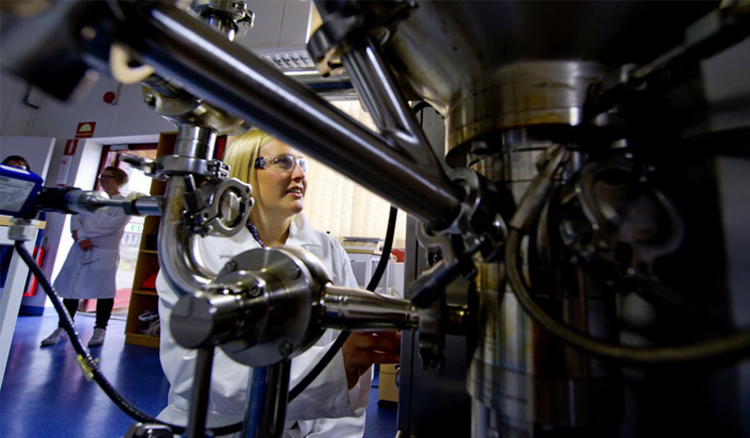Studies conducted at Nynas’ specialist grease lab and Optimol Instruments in Germany show how tribological tests can be used to optimise the formulation of lithium and lithium complex greases, providing more cost-effective lubrication products.
“We wanted to investigate how the formulation of lithium and lithium complex greases can be optimised using tribological tests, and also to study the influence of different naphthenic oils and additives”, says Nynas Senior Development Engineer Dr. Jinxia Li.
The results suggest that by running various tribological tests the formulation of grease can be optimised further, resulting in more cost-efficient solutions. However, the results also reveal how important it is to carefully select relevant test methods when simulating conditions of applications in the field. Jinxia Li and her colleagues discovered that different test methods can provide different data, which may lead formulators to draw the wrong conclusions.
A step-by-step investigation was devised to study the behaviour of lubricating grease in different tribological contacts. An intensely discussed topic for many decades, it is also known that a vast number of material related parameters have significant impact on the tribological behaviour of grease. The type and amount of thickener, the type and viscosity of the oil, and the type and concentration of additives are also directly related to the cost of the formulation.
Lithium and lithium complex thickeners were chosen for the study as more than 75 percent of the global grease production is based on these two thickener systems. Three naphthenic base oils of different viscosities (150, 375 and 600 mm2/s) were used in the experiments as well as two additive packages, both consisting of antioxidant, anti-wear, and extreme pressure components, one of them with an extra dose of extreme pressure additive.
“Our aim was to evaluate the impact of the characteristics of the base oils, thickener type and additive concentration tribologically by using various SRV methods as well as four-ball methods,” explains Jinxia Li.


Six greases, three conventional lithium (Li) greases and three lithium complex (LiX) greases were produced in a pilot plant at atmospheric pressure, see Table 1.
The use of naphthenic base oils kept the thickener content low. However, a direct correlation between the viscosity of theses naphthenic base oils and the thickener content was found – the higher the viscosity the lower the thickener content.

Figure 1 shows the wear values of three non-additivated greases with different base oil viscosity and the corresponding ones with lithium and lithium complex thickener from SRV tests. These results confirm that the greases with the highest base oil viscosity (NYNAS T 600) contribute to the highest disc wear volume, while the wear on the ball remains the lowest.

In the SRV tests, wear values increased for both disc and ball with extra extreme pressure additive regardless of the thickener type for greases based on the naphthenic oil of the highest viscosity, see Figure 2. The four-ball tests showed positive impact both on the wear scar diameter and weld load carrying capacity for the lithium grease (C). For the lithium complex grease (F), only the load carrying capacity showed a positive effect, see Table 2.
“From Nynas’ point of view, the most important finding of this study is the fact that the thickener content of a grease seems to affect the tribological performance which in turn is dominated by the characteristics of the base oil, for instance, its polarity, degree of solvency and viscosity,” says Jinxia Li.

The test method matters
The tribological properties of all formulated greases were studied by using various ASTM methods in the new generation tribometer SRV®5 and a traditional four-ball set-up. These tribological investigations proved crucial for optimising the grease formulations for specific tribological contacts.
However, they also highlight that the choice of test method matters, exemplified by the differences observed between the two thickener systems in the additivated greases, where the additive package containing an extra dose of extreme pressure additive performed differently in the two test rigs.
*Read more in LUBE magazine: No.136 page 1
Dr. Jinxia Li is a Senior Development Engineer, working in Technical Development and Market Support, Nynas Naphthenics. She joined Nynas in 2016.

















